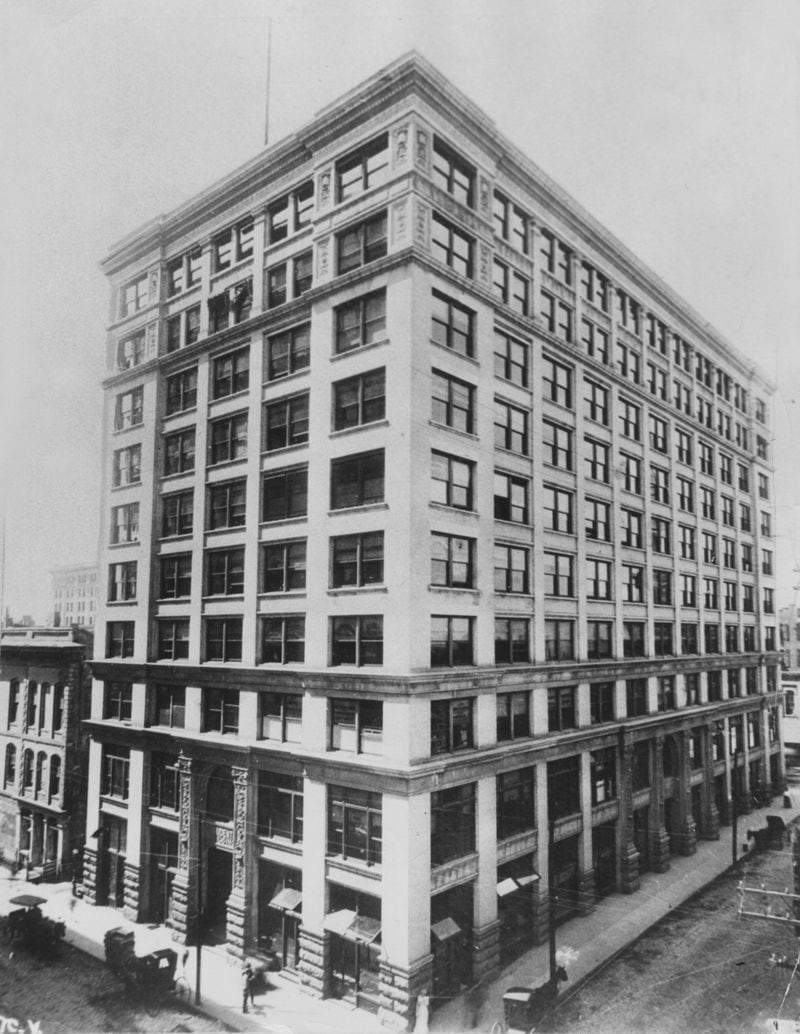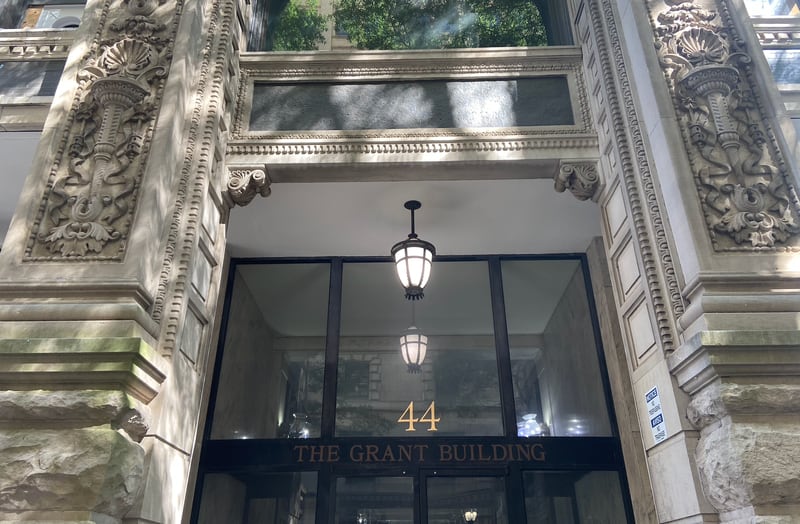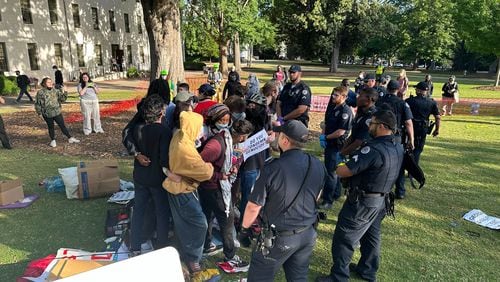Given the office market’s well-documented struggles over the past few years, developers have taken a renewed interest in converting Atlanta’s unwanted workspace into residences.
The benefits are enticing, because these endeavors remove obsolete office stock from an overstuffed market and replace it with much-needed housing. However, it’s a difficult task in the best of times — and it’s even harder when economic headwinds like high interest rates and tight credit are blowing.
Two Texas development firms that are undertaking multiple office-to-residential conversions in downtown Atlanta could lose one of their projects to foreclosure in May after defaulting on a $20 million loan, according to a foreclosure notice filed by the lender.
An affiliate of Arbor Realty Trust filed the foreclosure notice last week for 41 Marietta St., a 13-story office building in downtown’s Fairlie-Poplar district.
Wolfe Investments and Bluelofts were in the process of retrofitting the 48-year-old building into 120 apartments, but the effort is now in jeopardy. The developers told The Atlanta Journal-Constitution in July that the refreshed 41 Marietta St. building was expected to open in February, but it’s unclear how far they got in their conversion effort.
Neither developer responded to a request for comment. Jay Latzak, an attorney representing Arbor Realty Trust, confirmed the pending foreclosure but did not know the status of the conversion.
The foreclosure notice was first reported by real estate publication Bisnow. The property is scheduled to be auctioned May 7.
A foreclosure notice does not guarantee the properties will be returned to the lender and a deal could be arranged in the days ahead to forestall such a move. But if the property changes hands, it is likely the lender would attempt to find another developer to complete the project.
Credit: Unknown
Credit: Unknown
In 2018, Wolfe paid $11.5 million to purchase the 135,000 square-foot building, which is located on the corner of Forsyth and Marietta streets. Once home to Standard Federal Savings and Loan, the building’s only tenant when the developers acquired it was a U.S. Post Office branch, which has since shuttered.
On the same city block, Wolfe and Bluelofts are underway with a second office-to-residential conversion project. In July, they started retrofitting the 10-story historic W.D. Grant Building off Broad Street into 165 apartments. The roughly 125,000-square-foot building has been on the National Register of Historic Places since 1979.
The developers said at the time the conversion should take about 18 months to complete, which would result in tenants occupying the building in January 2025. A status update has not been provided, but Colliers Senior Vice President Helen Zaver, who helped broker the W.D. Grant Building’s sale to the developers, said its loan is not tied to 41 Marietta St.
Credit: Zachary Hansen
Credit: Zachary Hansen
Arbor Realty Trust, which is based in New York, specializes in providing debt capital for multifamily and commercial real estate properties, but it’s recently accumulated a trove of troubled loans. A fourth of Arbor’s securitized debt borrowers were late on their debt payments as of January, according to The Wall Street Journal.
Arbor President and CEO Ivan Kaufman said on a February earnings call that his company is “experiencing elevated delinquencies,” according to Bisnow. The company is among many commercial real estate lenders facing pressure amid high interest rate concerns and a troubled office market.
“One of the many reasons this is occurring is certain borrowers are taking the position that they will default first and negotiate second, which is not a strategy that works well with us,” Kaufman said. “Borrowers need to bring capital to the table to right-size their deals, and raising capital is a lengthy process in today’s climate.”









